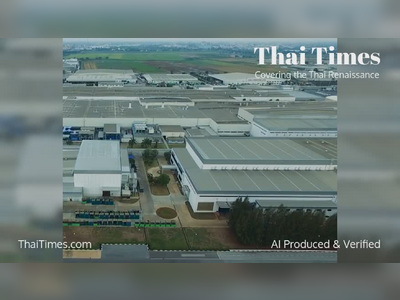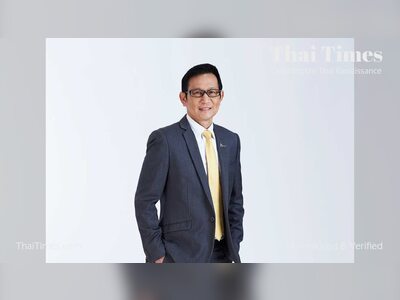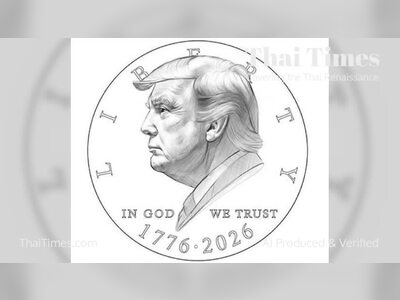
Thailand Advances in Sustainable Energy and Technology Initiatives
Collaborations focus on renewable energy, biodiversity, and digital authentication amidst rising technology challenges.
Thailand is witnessing a series of initiatives aimed at promoting sustainable energy practices and technological advancements tailored to environmental conservation and digital innovation.
Recently, DIA Company Limited and Urban Chaophraya Company Limited, part of the Urban Hospitality Group (UHG), signed a solar power purchase agreement to implement solar energy solutions at one of UHG's premier hotels along the Chaophraya River.
The agreement underscores both organizations' commitment to reducing carbon emissions and fostering sustainability within the hospitality sector.
Key executives, including UHG's Managing Director, Mr. Wutthiphon Taworntawat, and DIA's Chief Executive Officer Mr. Anusit Panmeeros, were present at the signing ceremony, highlighting a collaborative effort towards environmental preservation.
In another notable development, the United Nations Development Programme (UNDP) partnered with Krungthai Bank to enhance sustainable finance and biodiversity conservation in Phetchaburi.
The partnership aims to restore local mangrove forests, thereby mitigating climate change and fostering community development.
A significant outcome was a Letter of Intent signed with Phetchaburi's Governor, establishing a framework for actionable sustainability goals.
Activities included local culinary demonstrations emphasizing sustainable food practices and initiatives to promote cultural tourism, thereby integrating economic growth with environmental stewardship.
Additionally, wildlife conservation efforts are bolstered by the establishment of an ecotourism information center in the Pak Thale Sub-district, which serves as a site for educating visitors about migratory birds and responsible environmental practices.
WHA Utilities and Power (WHAUP) announced an ambitious investment plan to channel 29 billion baht toward the development of renewable energy projects from 2025 to 2029. Approximately 75% of this budget will be allocated to solar energy initiatives, aimed at providing clean electricity to industries, particularly in the tech sector.
This initiative reflects a growing demand for renewable energy solutions from foreign investors establishing operations in Thailand.
Furthermore, WHAUP has set an ambitious target to expand its power generation capacity significantly, increasing the share of renewable energy in its portfolio to meet environmental goals amidst rising industrial needs.
In a move towards securing a digital future, Thailand launched a new service known as World’s Proof of Human Technology, aimed at preventing online fraud and verifying users' identities amidst a rise in AI-generated scams and identity theft.
This technology utilizes innovative cryptographic methods to ensure privacy while confirming the authenticity of users without requisitioning personal data.
Complementing these advancements, a recent report by Alibaba Cloud indicates that Thai businesses are at the forefront of Asia's sustainability transition, recognizing the potential of digital technology in achieving environmental goals.
Despite a commitment to energy efficiency, many businesses expressed concerns about the energy demands posed by these technologies.
The report identified a knowledge gap among companies regarding how digital advancements can effectively support sustainable initiatives.
These collaborative efforts across different sectors highlight Thailand's proactive stance in addressing environmental challenges while fostering economic development through cleaner energy and innovative technological solutions.
Recently, DIA Company Limited and Urban Chaophraya Company Limited, part of the Urban Hospitality Group (UHG), signed a solar power purchase agreement to implement solar energy solutions at one of UHG's premier hotels along the Chaophraya River.
The agreement underscores both organizations' commitment to reducing carbon emissions and fostering sustainability within the hospitality sector.
Key executives, including UHG's Managing Director, Mr. Wutthiphon Taworntawat, and DIA's Chief Executive Officer Mr. Anusit Panmeeros, were present at the signing ceremony, highlighting a collaborative effort towards environmental preservation.
In another notable development, the United Nations Development Programme (UNDP) partnered with Krungthai Bank to enhance sustainable finance and biodiversity conservation in Phetchaburi.
The partnership aims to restore local mangrove forests, thereby mitigating climate change and fostering community development.
A significant outcome was a Letter of Intent signed with Phetchaburi's Governor, establishing a framework for actionable sustainability goals.
Activities included local culinary demonstrations emphasizing sustainable food practices and initiatives to promote cultural tourism, thereby integrating economic growth with environmental stewardship.
Additionally, wildlife conservation efforts are bolstered by the establishment of an ecotourism information center in the Pak Thale Sub-district, which serves as a site for educating visitors about migratory birds and responsible environmental practices.
WHA Utilities and Power (WHAUP) announced an ambitious investment plan to channel 29 billion baht toward the development of renewable energy projects from 2025 to 2029. Approximately 75% of this budget will be allocated to solar energy initiatives, aimed at providing clean electricity to industries, particularly in the tech sector.
This initiative reflects a growing demand for renewable energy solutions from foreign investors establishing operations in Thailand.
Furthermore, WHAUP has set an ambitious target to expand its power generation capacity significantly, increasing the share of renewable energy in its portfolio to meet environmental goals amidst rising industrial needs.
In a move towards securing a digital future, Thailand launched a new service known as World’s Proof of Human Technology, aimed at preventing online fraud and verifying users' identities amidst a rise in AI-generated scams and identity theft.
This technology utilizes innovative cryptographic methods to ensure privacy while confirming the authenticity of users without requisitioning personal data.
Complementing these advancements, a recent report by Alibaba Cloud indicates that Thai businesses are at the forefront of Asia's sustainability transition, recognizing the potential of digital technology in achieving environmental goals.
Despite a commitment to energy efficiency, many businesses expressed concerns about the energy demands posed by these technologies.
The report identified a knowledge gap among companies regarding how digital advancements can effectively support sustainable initiatives.
These collaborative efforts across different sectors highlight Thailand's proactive stance in addressing environmental challenges while fostering economic development through cleaner energy and innovative technological solutions.











